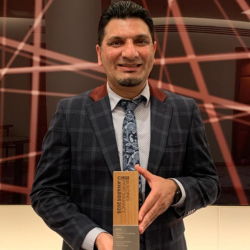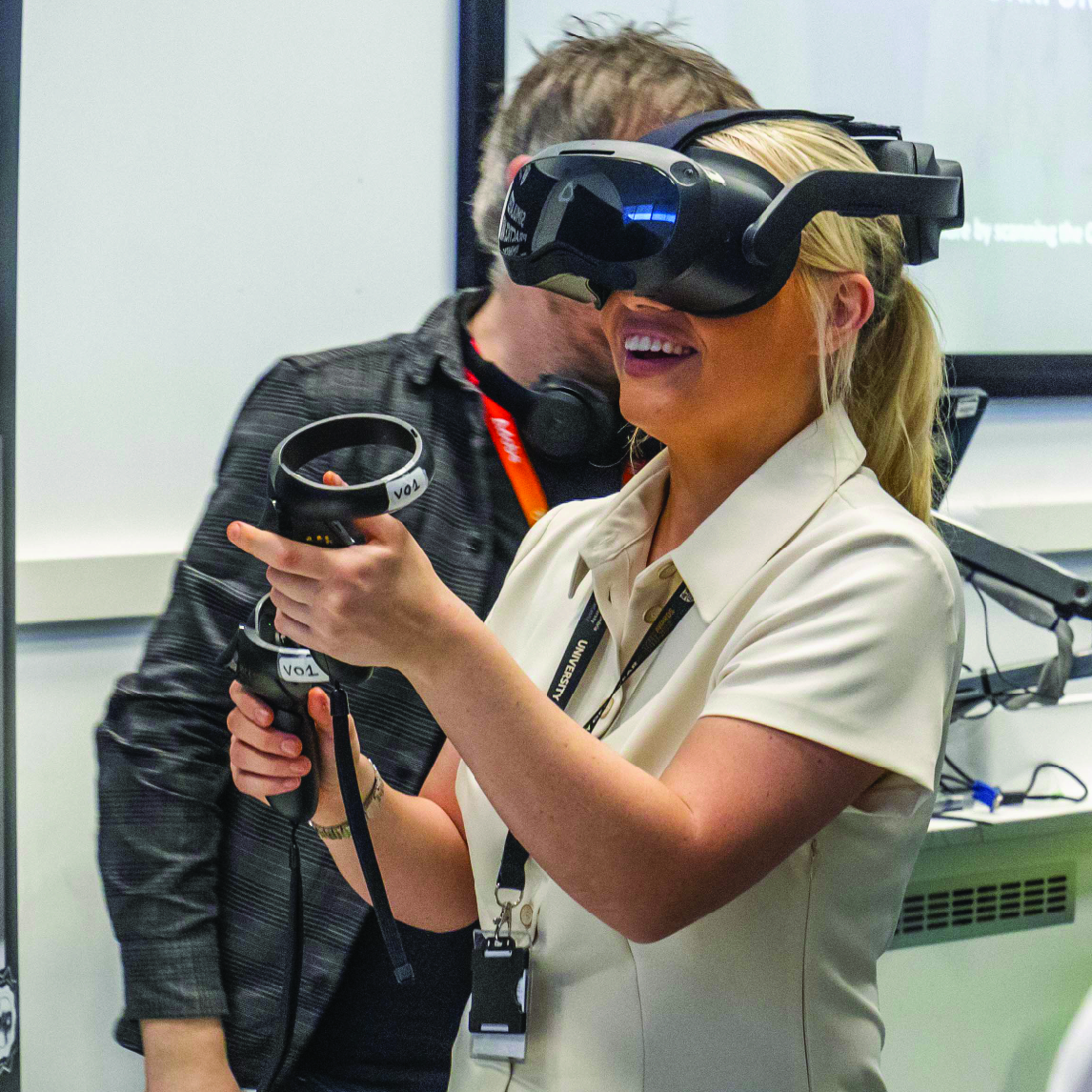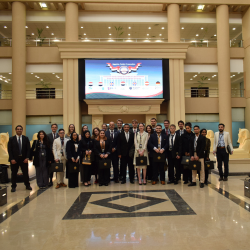-
Study
-
Quick Links
- Course Search
- Unlock Your Potential
- Still time to Apply
- Higher and Degree Apprenticeships
- Continuing Professional Development
- Still time to apply
-
Undergraduate
- Course Search
- Application Guides
- UCAS Exhibitions
- Foundation Years
- Fees and Funding
- School & College Outreach
- Information for Parents
-
Postgraduate
- Course Search
- Application Guide
- Postgraduate Research Degrees
- Flexible Learning
- Fees and Funding
- Change Direction
- Register your Interest
-
Student Life
- Students' Union
- The Hub - Student Blog
- Accommodation
- Northumbria Sport
- Support for Students
-
Experience Northumbria
- Open Days & Events
- Virtual Tours
- Campus Tours
- Life in Newcastle
-
-
International
International
Northumbria’s global footprint touches every continent across the world, through our global partnerships across 17 institutions in 10 countries, to our 277,000 strong alumni community and 150 recruitment partners – we prepare our students for the challenges of tomorrow. Discover more about how to join Northumbria’s global family or our partnerships.
View our Global Footprint-
Quick Links
- Course Search
- Undergraduate Study
- Postgraduate Study
- Information for Parents
- London Campus
- Northumbria Pathway
- Sign up for Information
-
International Students
- Information for Students
- International Events
- Application Guide
- Entry Requirements and Education Country Agents
- Global Offices
- English Requirements
- English Language Centre
- International student support
-
International Fees and Funding
- International Undergraduate Fees
- International Undergraduate Funding
- International Masters Fees
- International Masters Funding
- International Postgraduate Research Fees
- International Postgraduate Research Funding
-
International Partners
- Agent and Representative Network
- Global Partnerships
- Global Community
-
International Mobility
- Information for Northumbria Students
- Information for Incoming Exchange Students
-
-
Business
Business
The world is changing faster than ever before. The future is there to be won by organisations who find ways to turn today's possibilities into tomorrows competitive edge. In a connected world, collaboration can be the key to success.
More on our Business Services -
Research
Research
Northumbria is a research-rich, business-focused, professional university with a global reputation for academic quality. We conduct ground-breaking research that is responsive to the science & technology, health & well being, economic and social and arts & cultural needs for the communities
Discover more about our Research -
About Us
-
About Northumbria
- Our Strategy
- Our Staff
- Place and Partnerships
- Leadership & Governance
- Academic Departments
- University Services
- History of Northumbria
- Contact us
- Online Shop
-
-
Alumni
Alumni
Northumbria University is renowned for the calibre of its business-ready graduates. Our alumni network has over 246,000 graduates based in 178 countries worldwide in a range of sectors, our alumni are making a real impact on the world.
Our Alumni - Work For Us
What will I learn on this module?
In this module you will critically analyse and review changes in theoretical perspectives of second language acquisition, and consider empirical research designed to test these theories. You will trace development of second language acquisition theory as well as considering more recent theoretical developments looking at models which include Contrastive Analysis, Interlanguage theories, Universal Grammar, Cognitive models and the roles of input, interaction and output. You will also consider the impact of individual differences on second language learning success, including a focus on cognitive and affective factors. The intention is that you will develop a deeper understanding of the relationship between theory, data, and practice and encourage critical reflection.
How will I learn on this module?
The module will be delivered through a combination of interactive lectures and seminars. Key themes and concepts will be introduced in lectures, supported by in-class discussions, guided-debates, and further exploration activities. All subject areas and theoretical debates within the module will be supported by reference to relevant literature, which you will read outside of class to further develop your knowledge and understanding of the field.
In addition to learning during taught hours with the module tutor, you will be expected to undertake both directed and independent learning. Directed learning will generally take the form of suggested weekly readings, relevant to that week’s research topic, and preparation for seminars where you will be expected to contribute to group work and full class discussion. Seminars will also contribute to the development of intellectual, transferable and practical skills. Independent learning will generally take the form of further reading and investigation, the consolidation of lecture and seminar notes, and revision/preparation for the assessment of the module.
All learning materials, tasks and readings will be posted on the eLP (e-learning portal) to facilitate full participation in the module. Additionally, you will receive formative feedback from your tutor. The module’s final, summative assessment will also provide an opportunity for learning.
How will I be supported academically on this module?
The module aims to expand your critical understanding of different, and often competing theoretical and empirical perspectives within second language acquisition. Lectures, seminars and tasks will develop your academic knowledge and skills, to help you attain the module learning outcomes. Your academic development will also be facilitated through engagement with the academic literature and by talking with your peers and the module tutor about your understanding of this literature (i.e. reading around the topic, and discussing and reflecting upon what you have read).
The module handbook provides details of lectures, seminars, reading lists and assessment criteria; lecture materials are made available on the eLP (see above). The module tutor will be available in lectures and seminars, as well as in ‘Feedback and consultation hours’ (i.e. ‘office hours’) and on email, to discuss any queries or concerns you have about how to excel academically on the module. Formative feedback will be provided both throughout lecture/seminar activities. Written feedback will also be provided on a formative essay plans, delivered towards the end of the semester.
In addition, you have a designated Personal Tutor throughout the entire duration of your programme. The academic side of the Personal Tutor’s role includes: monitoring your ongoing academic progress; helping you to develop self-reflection skills necessary for continuous academic development; directing you to further available services which can help them with their academic skills (e.g. Library’s Skills Plus). You are advised to meet with your Personal Tutor at least twice each semester to review your academic progress.
What will I be expected to read on this module?
All modules at Northumbria include a range of reading materials that students are expected to engage with. Online reading lists (provided after enrolment) give you access to your reading material for your modules. The Library works in partnership with your module tutors to ensure you have access to the material that you need.
What will I be expected to achieve?
Knowledge & Understanding:
1. to consolidate and develop students' understanding of second language acquisition and contemporary ideas about how second languages are acquired.
Intellectual / Professional skills & abilities:
1. ability to critically apply, interpret and present knowledge both orally and in writing.
2. Demonstrate a critical understanding of the theoretical and practical issues as they relate to second language acquisition, including methods of data collection and analysis.
Personal Values Attributes (Global / Cultural awareness, Ethics, Curiosity) (PVA):
3. Demonstrate intellectual openness to different theoretical perspectives and empirical methods of enquiry.
How will I be assessed?
Formative assessment
1. For formative assessment students submit a 500 word (approx.) outline of their essay prior to submission; the outline is then discussed with the module tutor and feedback is given. Ongoing formative assessment/feedback will take place during seminars as part of the continual process of group discussion and analysis of data.
Feedback from formative assessment will assist in the preparation of the course essay. Feedback on summative work will be delivered according to the existing protocols of the Department of Humanities, with comments on feedback sheets. Feedback will encourage and facilitate reflective learning.
Summative (graded) Assessments
1. 4000-word data set analysis
Students will be required to write one 4000 word essay on topics discussed in the lectures and seminars. In the essay, they will be required to show how empirical findings relate to the theories discussed in the lectures.
The essay assessment will be part of the learning process, and addresses all four MLOS.
Feedback will be provided using the Programme template and comments on the script.
Pre-requisite(s)
N/A
Co-requisite(s)
N/A
Module abstract
This module will provide you with a platform to explore and engage with theoretical and empirical concepts central to understanding second language acquisition. It will enable you to develop a critical understanding of the theoretical and practical issues as they relate to second language acquisition, including methods of data collection and analysis and thus allow you to critically evaluate the theories and research of others. You will also reflect critically on changes in theoretical perspectives of second language acquisition as well as examining more contemporary ideas about how second languages are acquired.
Course info
Credits 20
Level of Study Postgraduate
Mode of Study 2 years Part Time
1 other options available
Department Humanities
Location City Campus, Northumbria University
City Newcastle
Start September 2025
All information is accurate at the time of sharing.
Full time Courses are primarily delivered via on-campus face to face learning but could include elements of online learning. Most courses run as planned and as promoted on our website and via our marketing materials, but if there are any substantial changes (as determined by the Competition and Markets Authority) to a course or there is the potential that course may be withdrawn, we will notify all affected applicants as soon as possible with advice and guidance regarding their options. It is also important to be aware that optional modules listed on course pages may be subject to change depending on uptake numbers each year.
Contact time is subject to increase or decrease in line with possible restrictions imposed by the government or the University in the interest of maintaining the health and safety and wellbeing of students, staff, and visitors if this is deemed necessary in future.
Useful Links
Find out about our distinctive approach at
www.northumbria.ac.uk/exp
Admissions Terms and Conditions
northumbria.ac.uk/terms
Fees and Funding
northumbria.ac.uk/fees
Admissions Policy
northumbria.ac.uk/adpolicy
Admissions Complaints Policy
northumbria.ac.uk/complaints









